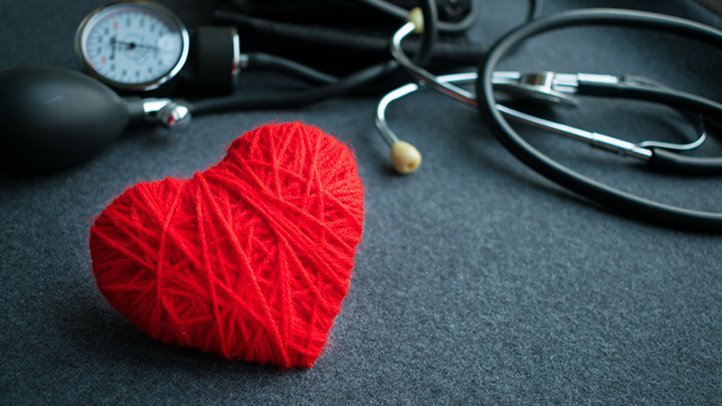Only 13% of those with hypertension adhere to medication schedule
July 22, 2019 | Monday | Views
Non-adherence to hypertension treatment protocols can prove detrimental to the body
image credit- istock.com
A recent study has indicated that more than 50% of Indians with hypertension are unaware of their condition. In addition, less than 1 in 7 (13%) take blood pressure lowering medication, and less than 1 in 10 (18%) are able to achieve control over the condition. The need of the hour is to increase awareness on hypertension, its causes, and the fact that it can cause damage to other organs if left untreated.
Hypertension is defined as blood pressure that is constantly higher than the recommended level of 140/90 mm Hg. Due to lack of symptoms, this condition gets detected only years after the actual onset. Precautionary measures are therefore a must, especially in those with a family history of the condition.
Speaking about this, Dr Rajeev Rathi, Director & Head of the Trans-Radial Interventional Programme, Max Super Specialty Hospital, Saket said, “Hypertension is a silent killer and a condition that can affect, major vital organs like the heart, brain, kidneys and eyes, over time. In these patients, the heart must work against greater resistance which puts more load on it. It further causes the heart to enlarge, weaken, and may result in heart failure. High blood pressure increases the risk of paralysis (stroke) and heart attack. Very often, this illness diagnosed when patient comes to the hospital because of either heart failure or heart attack or paralysis. Due to this, high blood pressure is also called as a silent killer. It is therefore imperative to undergo regular health checkups and understand whether your blood pressure is under control. One should also adhere to the medication schedule failing which the condition can cause the above-mentioned complications.”
A case in point is that of a 45-year-old man who was brought unconscious to the hospital. He had no movement on the right side of his body. His medical history indicated that he had high blood pressure since the last 7 years but stopped taking medication after some time. Since he thought that his blood pressure is now controlled. While everything seemed fine initially, there was a sudden onset of headache one day after which he became unconscious. A CT scan indicated he had brain hemorrhage and the right side of his body was paralysed.
Adding further, Dr Rajeev Rathi said, “With about 2.6 lakh Indians dying in India due to hypertension, it has become the most prevalent chronic disease in the country. Lifestyle changes are very important in managing and preventing hypertension and the resultant health problems.”
Treatment of high blood pressure includes lifestyle changes and drugs. One should remember that with drugs, we can control high blood pressure but not cure the condition. If a person stops taking drugs, then their blood pressure is likely to increase. This rebound blood pressure is very dangerous for all body organs, especially the brain and heart.
A detailed study of 6,13,815 patients has shown that even a reduction of 10 mm of Hg systolic blood pressure can result in a marked reduction in the occurrence of heart failure, brain stroke, heart attack, and deaths. This study has proven the importance and necessity of controlling blood pressure without any doubt.
If a patient develops an acute heart attack, then he/she should be treated immediately by angioplasty (if this facility is available in that place) to minimize or avoid the damage to the heart muscles. In this form of treatment, the recently blocked artery which has caused heart attack is opened by putting a good-quality time tested stent. There has been a reduction in the price of stents and all drug-coated stents are now available at the same price including the ones from best international companies.
Some tips to prevent high blood pressure
- Achieve and maintain a healthy weight for your height.
- Exercise regularly.
- Eat a diet that is rich in fruits, vegetables, and whole grains.
- Limit sodium intake to under 5gm per day and get plenty of potassium (at least 4,700 mg per day) from fruits and vegetables.
- Reduce stress through yoga and meditation.
- Monitor your blood pressure regularly, and work with your doctor to keep it in a healthy range.









